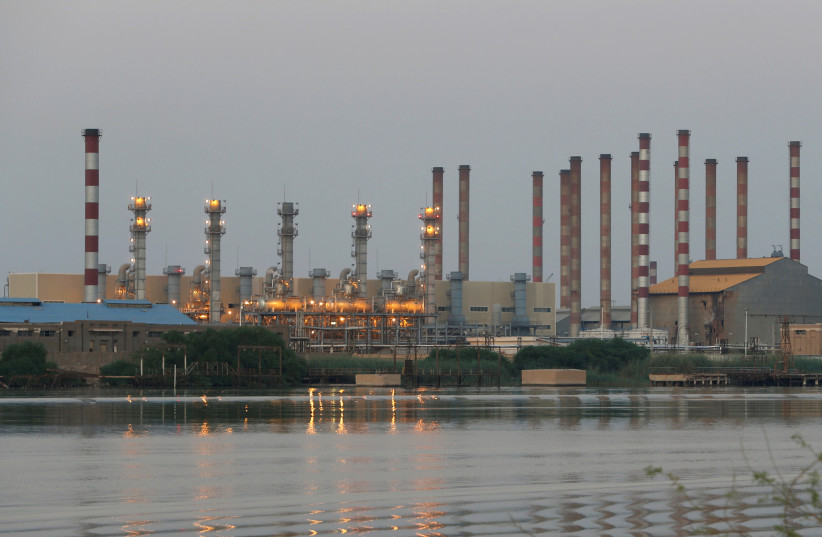Iraq relies on oil and is already in economic dire distress. The successful Kurdistan autonomous region also relies on oil and will be hit hard.
SETH J. FRANTZMAN

Oil prices appeared to collapse on Monday as the May futures contracts for West Texas International, a benchmark trading contract, fell below zero. This doesn’t mean oil prices will really be zero, but overall oil prices have been down globally and the market turbulence has shocked people. Prices at the pump will not be reduced as much as barrels of oil will now decline from $60 last year to historic lows this month.
The oil prices are suffering the ripple effects of the coronavirus pandemic and a price war that took place between Saudi Arabia and Russia in early April. Those countries agreed on a deal between April 9 and 12 which was supposed to stabilize prices and lead to some production cuts. It was too late for the markets though.
The overall effect of the collapse in oil prices will not be known for sometime. It appears that it is one of the many secondary curves that have come out of the more well known coronavirus curve of infections. That curve was flattened by lockdowns. But lockdowns also caused travel to grind to a halt. Uncertainty meant that there is less demand for oil. Oil prices were already declining but this is the kind of uncertainty and shock that causes unprecedented results.
The next impact of the virus and oil prices is likely come in other tensions and crises in the Middle East. That means there may be growing attempts by Iran to pressure the US Navy in the Persian Gulf. This has already happened but Iran is signaling that tit has new ship missiles and drone technology that can be used against the US and allies.
There may be other ripple effects, such as economic collapse of states or political upheaval. Several countries in the region rely particularly on the oil trade. This includes Kuwait, Saudi Arabia, the UAE, Iran, Iraq, Algeria, Azerbaijan, Qatar, Oman and Bahrain. Some countries GDP is dominated by oil, including Kuwait, Saudi Arabia, Iraq and Oman. These countries have attempted to reduce their need to rely on oil in recent years, seeking to diversify their economies as they predicted oil prices will decline. But they couldn’t move fast enough. Saudi Arabia’s Vision 2030 has sought to diversify the economy and create new, non-oil based, jobs. But that is a decade off.
Iraq relies on oil and is already in economic dire distress. It has had six months of protests because the government failed over the last decade to invest in basic infrastructure. The successful Kurdistan autonomous region also relies on oil and will be hit hard.
Other countries may profit from low oil prices. Jordan, Israel, Egypt, Lebanon and other countries can benefit. Many of these countries have lost massively in tourism dollars due to the pandemic, so this is a consolation prize. The King of Jordan has sought to prepare for low oil prices. In the past Jordan has subsidized fuel prices and when it sought to lift the subsidies it ran into protests.
The falling prices can be a positive and negative to countries such as Lebanon which already have an economy on edge. These countries rely on remittances from abroad and some of that comes from the Gulf. An oil crises can actually harm the remittances even if it makes some economic pain decrease. Turkey expects to be a winner as well, reducing the cost of energy imports and reducing inflation. This is yet another mixed bag for Turkey because the country now has the most coronavirus cases in the Middle East. So it may profit from lower oil prices but suffer in other ways.
The long term story of the oil price collapse and the pandemic are a series of rare black swan events being loosed on the Middle East. The oil price collapse is likely the first of many crises and it will cause many countries to be concerned about what comes next. With closed borders, concerns about conflicts in Syria, Libya, Yemen and elsewhere, and declining interest from the Western powers, Middle Eastern countries are now more on their own than in the past. The era of great power rivalries such as the Cold War or era of colonial mandates is long over. The era of US hegemony is declining as the US shift forces from the region and contemplates more withdrawals.
This means regional conflicts and alliances are increasing as well as proxy wars in places like Yemen, Libya and Syria. For instance in Libya a UAE-Egypt-Saudi backed faction is fighting a Turkey-Qatar-backed faction. In Yemen the Iranians are backing the Houthis against a Saudi-backed government. In Syria the Russian and Iranian-backed regime face off against the US and against Turkish-backed groups. The oil crisis is a new wrench thrown into the mix.
Content retrieved from: https://www.jpost.com/middle-east/epic-collapse-in-oil-price-is-a-second-pandemic-for-the-middle-east-625272?fbclid=IwAR3mzGgNm_jzX47pRgfDa9evyOu2UrTyZAn0gJalGcueqoEsMkpqg7PX_p8.